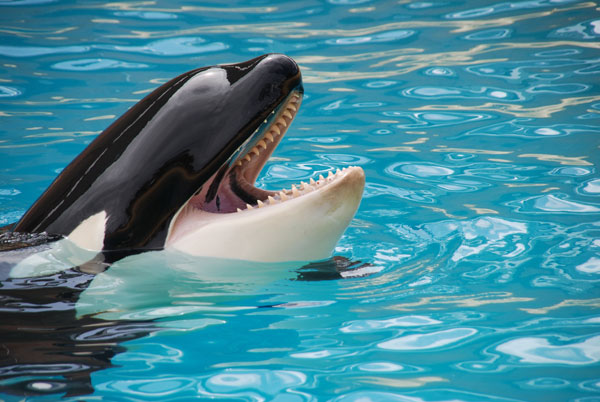A Killer Whale in an aquarium had died in loneliness

[Killer Whale. Photo Credit to PxHere]
Kiska the killer whale died after spending over four decades in one of the aquariums in Canada.
On March 13th, the Ontario government reported that Marineland, a theme park in Niagara Falls, Ontario, Canada informed of the death of Kiska on March 9th.
Marineland informed that Kiska’s health was declining over a few weeks and a bacterial infection caused her to die.
Moreover, they reported that “Marine mammal care team and experts did everything possible to support Kiska’s comfort and will mourn her loss.”
Kiska was captured in Icelandic waters in 1979 with Keiko, the future star of the “Free Willy” movies. She was 3 years old when she was captured.
Kiska and Keiko remained together until the 80s when they were sold to different countries.
Keiko was later saved from a Mexican entertainment park and released to her Icelandic home waters.
However, Kiska was trapped in Marineland for more than 40 years.
Kiska, also widely known as ‘The Loneliest Whale in the World’, was the last killer whale to be captured in Canada.
She was utilized in thousands of performances, but due to protests from animal protection groups and civilians, killer whale performances were suspended in 2017.
Until the suspension of the performances, Kiska was behaving in an unusual way.
In 2021, a video of Kiska hitting her head and body on the aquarium wall was released, outraging the whole world.
This incident doesn’t only apply to Kiska, as the living environment of the beluga whales, sea elephants, sea lions, and dolphins was problematic in Marineland.
The whistle-blower who released the video of Kiska on Social Network Service, Phil Demers, a Marineland trainer, said “This cruelty must end.”
Demers also said “There’s many more animals to rescue. Can’t stop now.”
This new video captured Kiska spinning in the aquarium in the same direction again and again.
This is one of the most typical abnormal phenomena shown by animals who are captured in zoos or aquariums.
Canadian non-profit group ‘Animal Justice’ requested a probe into how Marineland is treating killer whales.
As a matter of fact, killer whales have a strong sociability with the behavior of staying in groups in the wild.
Experts say the reason killer whales stay healthy for ages is due to the fact that they survive in groups.
Moreover, the killer whale’s characteristic of being in groups was taken away from Kiska, who was isolated in an artificial environment, causing that to be one of the main possible factors leading to her death.
In fact, tank environments are also not adequate for dolphins.
This is because whales are highly intelligent and socially complex to have isolated and trapped lives.
Furthermore, many marine activists expect Kiska’s tragic story to attract the public’s interest in sea mammals’ predicaments.
Meanwhile, according to WDC’s (Whale and Dolphin Conservation) statistics with the standard of this year January, at least 55 killer whales are trapped in marine parks all over the world.
The WDC organization is being active in banning performances, breeding, wild captures, and trade between facilities and in improving welfare conditions and wild sea sanctuaries.

- Catrina Cho / Grade 10
- Saint Paul Preparatory Seoul

![THE HERALD STUDENT REPORTERS [US]](/assets/images/logo_student_us.png)
![THE HERALD STUDENT REPORTERS [Canada]](/assets/images/logo_student_ca.png)
